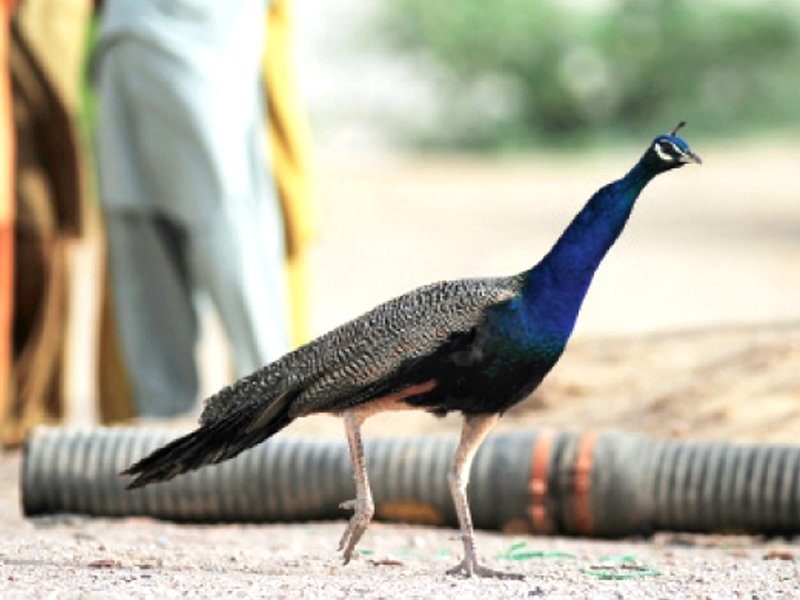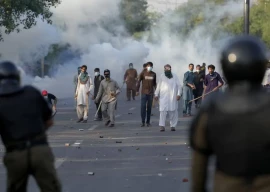
Reports about the death of peacocks have emerged in Mithi, Diplo and Nagarparkar tehsils. Though Thar’s villagers may harbour concerns about the emergence of the Newcastle Disease Virus - or Ranikhet, the wildlife department has yet to verify the deaths and maintains that the birds may have died of other causes.
The illness, along with a severe deficiency of vitamins and minerals, affects birds’ nervous systems. An acute shortage of water, sweltering heat and a very low yields of millet, maize and other plants which the peacocks feed on, results in the deficiency.
When infected, the peacocks start to feel dizzy and whirl to their deaths. According to unconfirmed reports, more than 300 died last year in the same season. Heman Das, a resident of Sajai village in Diplo, said, “They spin round and round for two to three minutes and then after a brief rest, continue the behaviour again relentlessly.”

Das believes the deaths and illness can be prevented if the authorities take care of the peacocks’ nutritional needs and administer vaccines to them. Thar’s villagers have a soft spot for peacocks - they care for them and provide them food as well as water. When the birds are sick, they try hard to cure them. And if they die, the villagers ensure that scavengers don’t go after the peacocks’ carcasses. It is they who sound the alarm every time the peacocks are in danger.
Qasim Nohrio, a resident of Dedvero village where four peacocks reportedly died of the disease, said people have been demanding medicines from the wildlife department. “The government only takes action when hundreds of birds have died.”
The villagers are giving the sick peacocks water-soluble vitamin tablets and antibiotics. The peacocks flock to villages in search of food and water after dawn. But it is the wildlife department which gives the villagers these medicines in the first place.
Wildlife officials are, however, still denying the emergence of the virus and so medicines have yet to be dispatched. The wildlife’s deputy director, Lajpat Maharaj, maintains that the deaths being attributed to the virus have natural causes. “People often make a fuss. They exaggerate.”
But he confirmed that the department has yet to look into the death of the peacocks. “The hot spell of the summer season has started. So we’re going to start preventive measures soon.”
Wildlife officials had maintained a similar stance last year and the treatment of the sick birds started quite late, allowing the mortality rate to swell. The district, spread over 19,638 square kilometres, consists of around 2,300 villages. An effective preventive drive, which involves distributing the medicines in the hundreds of villages where the bird is found, may take months to yield results.
Published in The Express Tribune, June 10th, 2013.





























1713853507-0/MalalaHilary-(2)1713853507-0-270x192.webp)







COMMENTS
Comments are moderated and generally will be posted if they are on-topic and not abusive.
For more information, please see our Comments FAQ